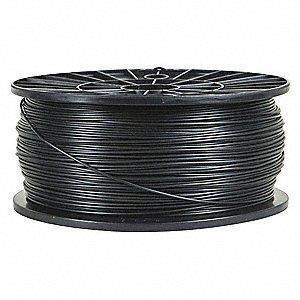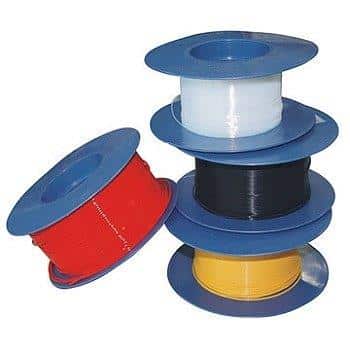Fluoropolymers such as perfluoroalkoxy alkane (PFA), polyvinylidene fluoride (PVDF), polytetrafluoroethylene (PTFE), and fluorinated ethylene propylene (FEP) are known for their use in many industries. These materials – specifically FEP – have outstanding properties, including superior elasticity, excellent UV resistance, and high thermal quality.

Manufacturers work alongside reputable wholesale FEP tubing suppliers in making single lumen and multi-lumen ducts for cardiology and endoscopy devices. They also produce micro tubing for intravenous (IV) catheters and heat shrink tubing for the medical industry.
There are some important safety requirements when processing fluoropolymers. Continue reading to learn more about them.
Components Should Be Made with Corrosion-Resistant Metals
Machinery that comes in contact with molten resin should be made of corrosion-resistant metals with high nickel content like Hastelloy C276 or Inconel 625. These include adapters, tooling, die heads, breaker plates, and screws.
Resistance to corrosion is a vital property to keep the components’ performance. Any damage they acquire affects the quality of the products.
To protect the extruder barrel from corrosion, a nickel-based bimetallic barrel liner such as X800 or tungsten carbide is recommended. For compact medical extruders 1.25-inch and smaller, the liner material should also be X800, and the entire backing of the bimetallic barrel must be a solid Inconel.
Be Careful When Using Specialty Bolts to Avoid Screw Breakage
A typical fluoropolymer screw is designed with a 3:1 compression ratio; sometimes, a low-shear Saxton-type distributive mixer is attached to its end. Although Inconel and Hastelloy are corrosion-resistant, these specialty metals have low torsional strength compared to common bolts made with 4140 or 4340 heat-treated steel.
Hastelloy C276 has a yield strength of approximately 52,000 pounds per square inch (PSI), about half that of 4140 steel with 28 to 32 Rockwell (RC) hardness. Meanwhile, Inconel 625 is stronger than C276 but isn’t as resistant to corrosion.
Avoid breakage when using a Hastelloy or Inconel screw while processing other high-temperature polymers that aren’t corrosive. These include polyetherimide (PEI) and polysulfone (PSU). For example, a 1-inch extruder with a 5-horsepower motor geared for a 100RPM screw speed is likely to break a bolt made from Hastelloy C276 in a cold start situation.
A Dual-Layer Barrel Must Be Used When Processing Fluoropolymers
Fluoropolymers are known for having high melting points. PFA has a melting point of 581 degrees Fahrenheit (F). The barrel set points for heat shrink FEP tubing are in the 600 to 740 degrees F range, so operators should ensure the material they’re using around extruder barrel heaters can sustain heat.
Cast bronze is the standard as it can withstand up to 900 degrees F. Because of the high operating temperatures, a special dual-layer safety shroud with this metal should be used over the barrel to protect the operator from burns.

Use Large Tooling Gaps to Avoid Shark Skin
Fluoropolymer tubing is also susceptible to melting fractures or having a “shark skin” appearance on the surface. This is caused by excessive shear in the die tooling gaps as output rates are increased.
The typical approach to avoiding melt fracture is to use tooling gaps with a larger drawdown. Tooling drawdowns of 3:1 to 20:1 are common for many polymers, while fluoropolymer processors use 50:1 or greater.
Processing Fluoropolymers Requires Proper Location Setting
Excess fumes, gases, and vapors released during the extrusion of fluoropolymers are harmful. Exposure can cause flu-like symptoms such as fever, chills, and headaches that manifest within 24 to 48 hours.
So, it’s vital that the process is done in the proper location. Harmful gases should be captured and removed immediately with an exhaust ventilation system that includes fans, ducts, and extraction hoods.
The extraction hoods should be placed above the die head. For large-diameter tubing, an additional duct has to be installed over the area where it’s cut. Packages containing fluoropolymer resins should also be sealed properly and must only be opened in well-ventilated areas.
Get in touch with Tef – Cap Industries Inc. for more details about processing fluoropolymers. They’re a reliable manufacturer and supplier of medical-grade items such as Extruded PTFE, FEP and PFA Tubing as well as Heat Shrink FEP Roll Covers.
